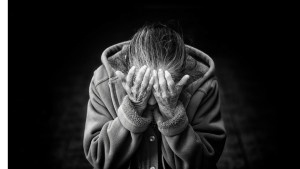June 8th, 2018
Making Sense Out of Suicide
Here is a blog I wrote in 2014 after the suicide of Robin Williams. Seems appropriate to review these sentiments today after a week of two high profile suicides in the USA, Kate Spade’s and Anthony Bourdain’s . . .
————————————–
I am angry with Robin Williams.
His death has affected me more than I thought it would. So, why not blog about it, process it, and begin growing because of it. Here it goes . . .
William had an enormous influence on my life and on the lives of thousands of my students and clients over the years.
Dead Poets Society
The very first time I walked into a college classroom as a professor I chose the unorthodox approach to teaching inspired by Williams’ portrayal of a private school instructor in the Dead Poets Society (DPS).
Forget lecturing I thought. Learning by doing, learning by making my students uncomfortable, learning by creating incentives for teamwork, and learning by questioning everything created an electric atmosphere in my classroom, and beyond.
I recall a time in the early 2000s when I encouraged a group of my students to start what they called “The Metaphysical Club”. Inspired by Louis Menand’s brilliant book about the age of the pragmatists, these students were fed up with the dominant responses to 9-11. They wanted to voice their more pragmatic perspectives.
My students were similar yet quite different to the the Williams’ cohort in the movie. His prep school boys, attracted to his passion and iconoclasm, created a group to express their own raw teenage passion and perceived boundless possibilities during a mid-20th century age of massive conformity and temperance (perceived at least). My students, conversely, yet equally non-conformist, warned of the dangers of excessive emotional (and passionate) responses to crises in the early 21st century.
A belief in boundless possibilities has a potential dark side, for when we think we have unlimited options all of the time (as his character in DPS implies), it can create a sense of great opportunity when times are good, and overwhelming hardship when times are not. This can lead to extremist behaviors.
Ahh, the anger is subsiding already. But I need to go deeper.
Suicide in Never Painless
I was often very unhappy as a child and contemplated ending my life on a few occasions. And I want to be crystal clear here. Even as an adult, and even post-coming out of the sexuality closet, I have entertained the idea (an inelegant sentence, but true). I would imagine most of us have.
Physical pain is hard to hide. People notice it and many of them reach out to support those with these ailments. Not true of emotional pain. People who experience it do not like to show it for a variety of reasons (perceived weakness high on the list) and their loved ones do not like to look for it for a variety of reasons (lacking the skills to cope high on the list). This is a potentially deadly combination.
Researchers like Stephen Joseph remind us however, that tremendous opportunities for growth, self-acceptance, and self-love exist when we open up about our troubles and traumas, however awful they may seem to us in the moment.
It sure helped me during a crisis I had in 2009 after the dissolution of a ten-year intimate relationship. I resisted my Italian-American instilled habit of “protecting my reputation” and instead shouted from the rooftops about how sad and depressed I felt. Many people around me could not deal with this posture (heck I could not deal with myself most of the time back then).
Recovery takes time, and talking about it certainly helps. But Stephen Joseph implores us to go beyond talking and beyond recovery. Create an action plan for post-traumatic growth. Talking is just the first step.
And even after we grow from our trauma, like I feel I have since 2009 (thanks to the supportive efforts of a lot of wonderful people), never lose an opportunity for a refresher course in post-traumatic growth.
So in that spirit, yesterday I forced myself to watch DPS. As soon as I saw Williams, I wept. And then I realized that his action, suicide, precluded him the opportunity to learn and grow from trauma, and prevented him from teaching all of us about post-traumatic growth.
Frankly I am angry with him because he chose the easier route afforded to him. Who am I to say who should or should not have the right to take their own life. I leave that to the philosophers and lawmakers of the 21st century.
But imagine what Williams could have taught us about emotional pain, about Parkinson’s, and about post-traumatic growth if he had resisted the noose and embraced his uncanny ability to connect with others.
Maybe he did not want that responsibility any longer. Maybe he was tired. Most likely he was scared, and felt exceptionally alone in that moment. Helping others was the furthest thing from his mind I suspect.
So, from anger to some peace and understanding. I sure will miss him.
Thank you Robin Williams, o captain my captain.
—
If you have any questions about coaching please feel free to contact me at scott@kineticcoaching.co, and remember I always offer a complimentary 30-45 minute session to prospective clients to determine if we want to work together.
